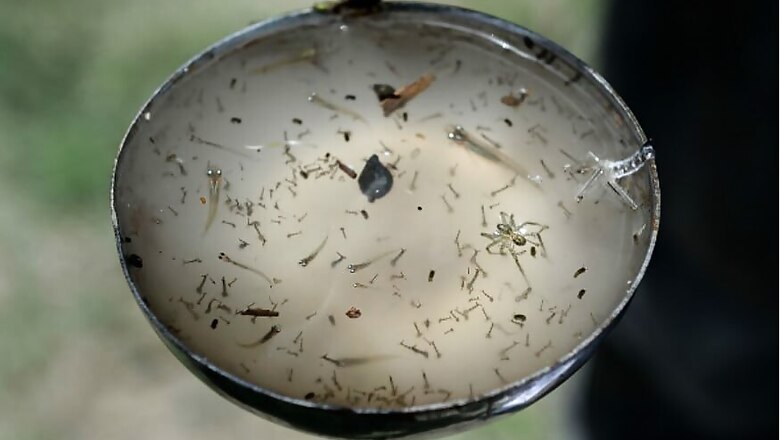
views
Monsoon has brought with itself several mosquito-borne diseases, including malaria, dengue, chikungunya and zika. Out of these, the dengue virus has proved to be one of the most prevalent mosquito-transmitted human pathogens. A mosquito-borne disease, dengue virus also replicates in the human cells in order to infect more cells. A study done by Ralf Bartenschlager of the University of Heidelberg and his colleagues has explained how the dengue virus RNA replicates in the infected cells. Done back on May 9, 2019, the study was published in PLOS Pathogens.
The study explains that the dengue virus (DENV) replicates in the cytoplasm of infected cells and induces a membranous replication organelle. This membranous organelle is formed by the invaginations of the endoplasmic reticulum membrane and designated vesicle packets (VPs).
An important multifunctional protein, Nonstructural protein 1 (NS1) of DENV, is majorly responsible for the severe clinical manifestations of dengue. While NS1 is indispensable for viral RNA replication, the underlying molecular mechanism remains elusive in the presence of NS1. In this study done by Ralf Bartenschlager and his colleagues, the researchers worked on how the determinants in NS1 contribute to the viral replication cycle.
During the course of the study, the researches made several observations. They found out that the exposed region of the β-ladder domain of NS1contains a cluster of amino acid residues which is necessary for NS1 secretion. In addition, to facilitate the process of RNA replication, there needs to be an interaction between NS1 and the NS4A-2K-4B, where two residues within the connector region of the NS1 “Wing” domain act crucial for binding of the NS4A-2K-4B precursor. The association between these two proteins plays a more direct role in the RNA amplification process.
After conducting the research and reading the case study, the researchers came to the conclusion that NS1 has a direct role in VP formation, which is otherwise independent of RNA replication. In nutshell, the results have demonstrated that NS1 is indispensable for proper formation of the DENV replication organelle, but this function is not related to the interaction of NS1 with the NS4A-2K-4B precursor.
On the other hand, a novel interaction of NS1 with a previously unrecognized NS4A-2K-NS4B precursor of the virus was found to be required for Dengue virus replication, while a detailed study of nonstructural protein 1 of Dengue virus identified the determinants that are required for secretion of NS1 protein, viral RNA replication and formation of the membranous replication organelle of this virus.




















Comments
0 comment